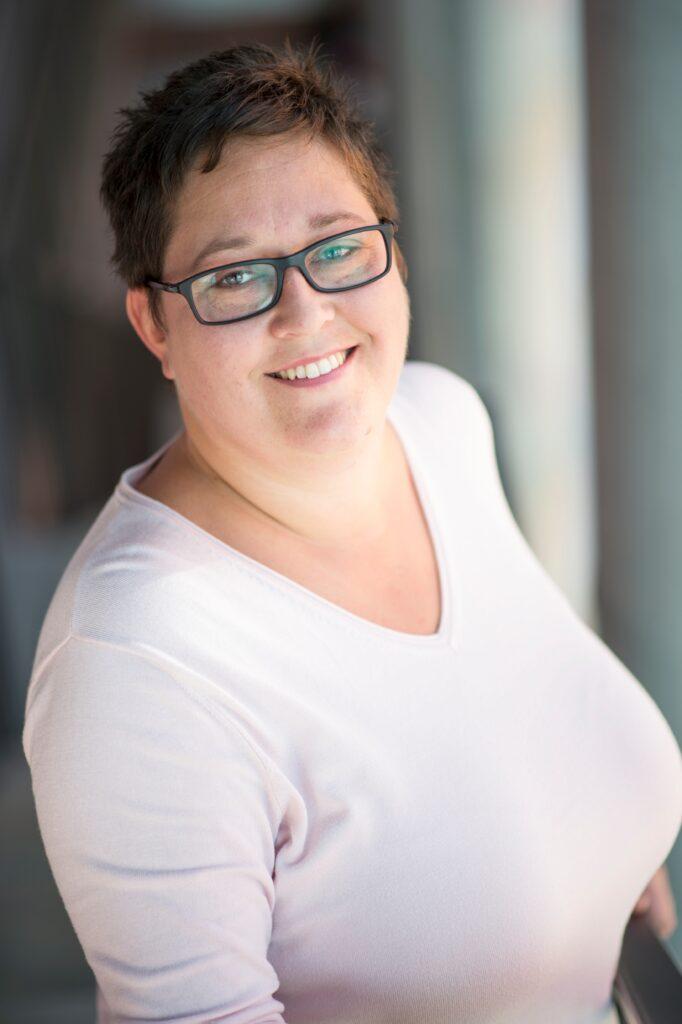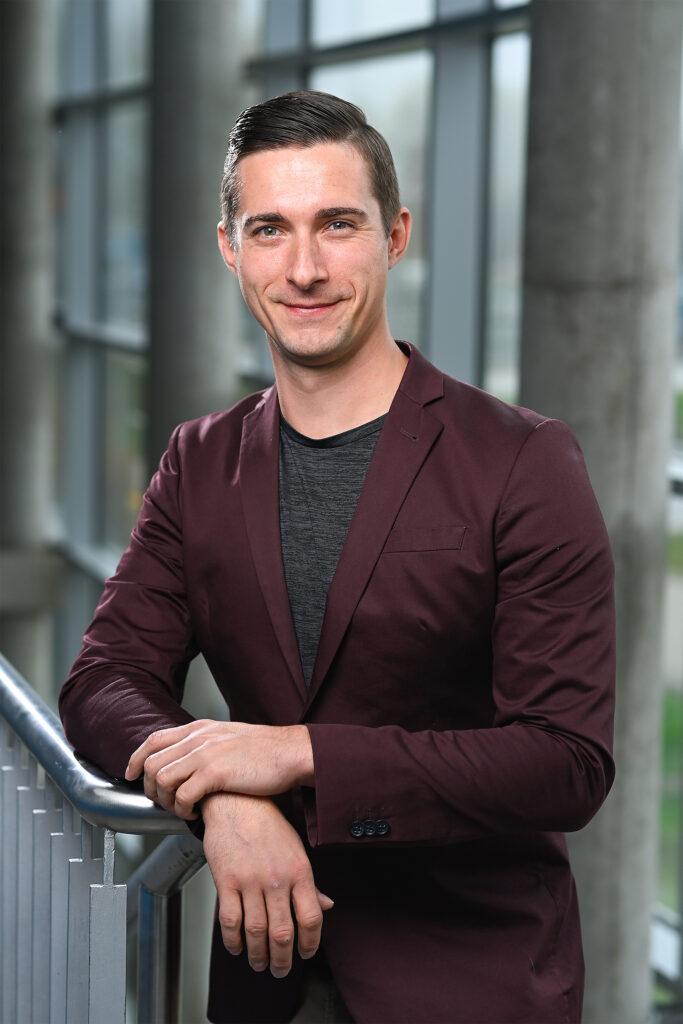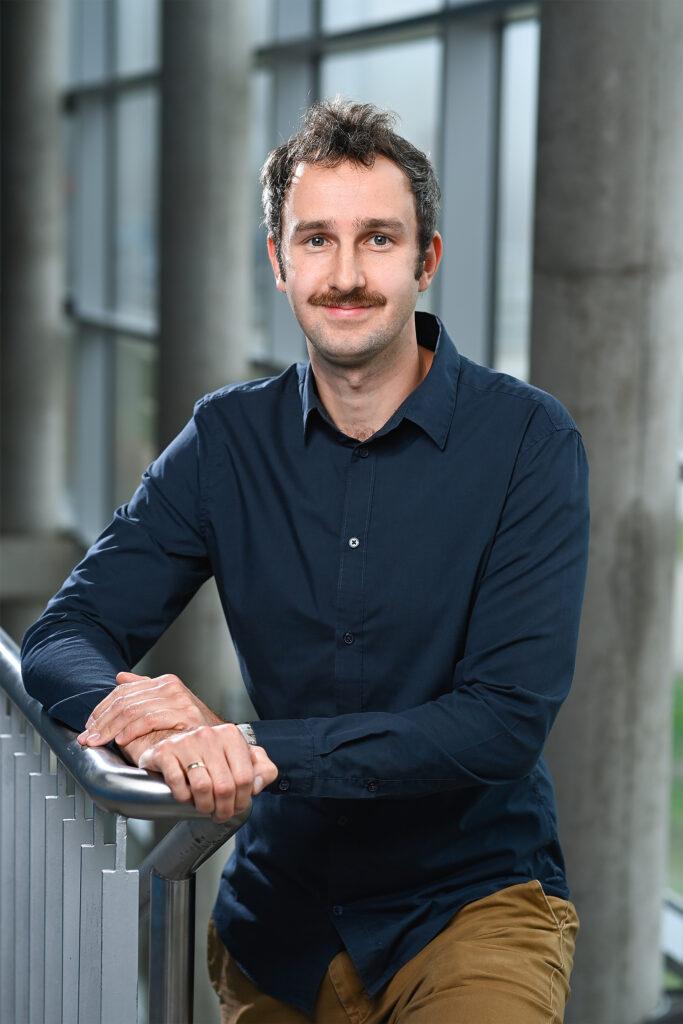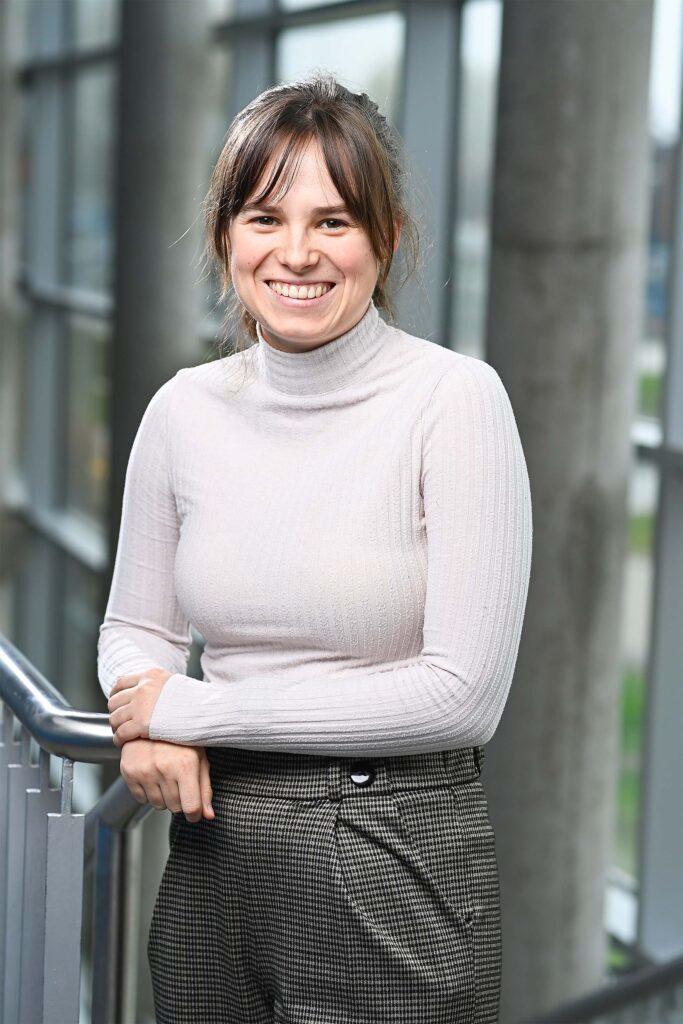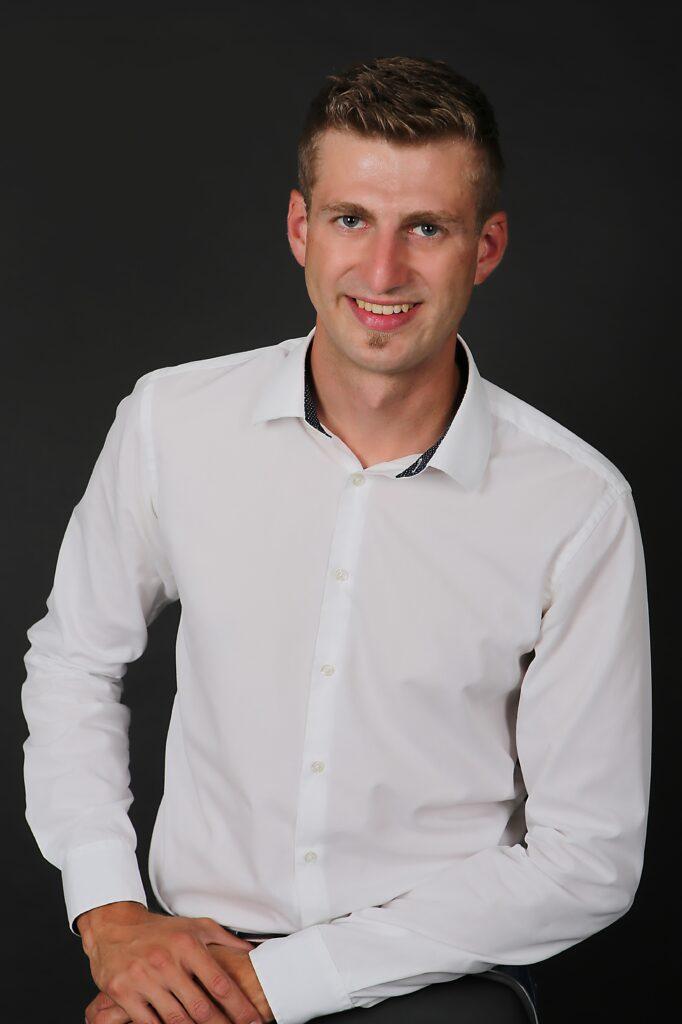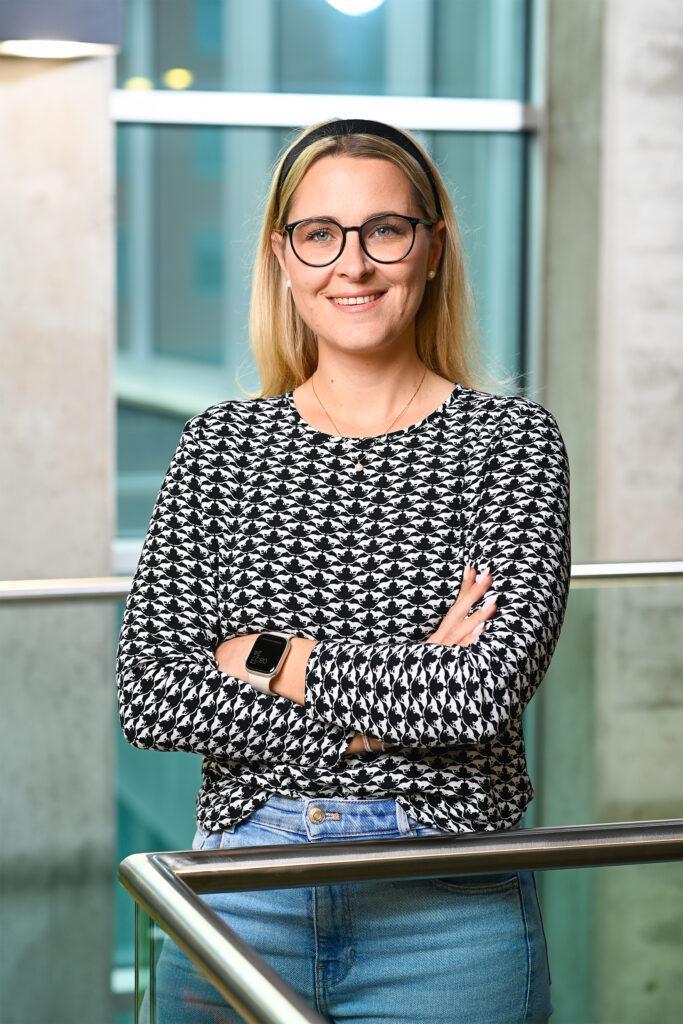
Welcome to ENABLE
our research group for health, care and inclusion. We focus on two central areas of life that affect almost everyone: Health and inclusion. When one of these areas is compromised, it can significantly affect quality of life, independence and functional capacity. Our work aims to meet these challenges through innovative approaches and to develop solutions that have an immediate impact on people’s everyday lives.
News and Blog posts
Recent Posts
- SENSHOME Final Events in Klagenfurt and Bolzano 12/12/2022
- OIS zam – joining forces for participatory research 11/09/2022
- Wordrap with Anna Drechslerová 08/04/2022
- Wordrap with Laura-Nadine Kroll 08/02/2022
- Sleep study to help people on the Autism Spectrum 07/14/2022
- Welcome, Jitka Sykorova! 05/11/2022
- COOP4HEALTHCARE Think Tank 2021 12/03/2021

Projects
Here you can find an overview of the ongoing and completed projects of the ENABLE research group. Click on the project title for more information.
Ongoing:
TeleCareHub | Technical approaches for people and care
PROTEA | Individuelle Prothetik
iLEAD | Lightweight Functional & Hybrid 3D-Printing for Medical Assistive Devices
Health for All | Strengthening cross-border cooperation and developing new solutions to provide all people with comprehensive access to health literacy and health services
BeSENSHome | Inclusive spaces for people with neurodiversity
Assistive technology to support people with autism spectrum disorder in their autonomy and safety: A scoping review.
Wohofsky, L., Scharf, P., Lattacher, S., & Krainer, D. (2021) in Technology and Disability, 1-11: https://doi.org/10.3233/TAD-210355
Evaluation und Weiterentwicklung einer nicht-invasiven assistiven Technologie zur Beurteilung von Ausnahmesituationen in der Wohnumgebung.
Wohofsky, L., Fink, S., McClatchie, S., Dirnbacher, T., Schubert, P., & Arbeiter, M. (2022) at ÖGGG, Salzburg: https://oeggg2022.univie.ac.at/willkommen/
Requirements for implementation of therapy devices in a tele-rehabilitation solution
Schubert P., Wohofsky L., Olip M. & Krainer D. (2022) at the 15th FFH Congress, Villach, Austria
REHA2030: Successful paths from requirements to a demonstrator via User Centered Design.
Scharf P., Wohofsky L. & Lattacher S. (2021) Poster Presentation, European Forum for Resarch in Europe, 2021, Ljubljana, Slovenia
Costumized Smart Home and Interior Design Concept Co-Designed with and for People with Autism Spectrum Disorder
Wohofsky L., Scharf P., Krainer D. & Lattacher L. (2021) Conference Paper, Poster dHealth
Activity monitoring in stroke rehabilitation: Advanced information for therapists and motivational factor for patients.
Schubert P.; Krainer D. & Wohofsky L. (2021) Poster Presentation European Forum for Research in Europe. Ljubljana, Slovenia.
Therapeutische Nah- und Nachversorgung nach Schlaganfall mittels Tele-Rehabilitation: Erforderliche Kernelemente.
Schubert P., Krainer D., Lattacher S., Scharf P. & Wohofsky L. (2021) Poster Presentation Geriatrieforum 2021, Vienna, Austria
Stichprobenbildung, Strategie und Umsetzung.
Krainer, D., Oberrauner, E., Oberzaucher, J., Aigner-Walder, B., Luger, A., & Ofner, R. (2021) in J. Oberzaucher, D. Krainer, O. Kada, D. E. Ströckl, & B. Aigner-Walder (Hrsg.), Smart VitAALity Einblicke, Ergebnisse und Befunde aus einer AAL Pilotregion (1. Ausgabe). Books on Demand.
Akzeptanz und Alltagsintegration von Smart VitAALity.
Krainer, D., Wohofsky, L., Scharf, P., & Lattacher, S. L. (2021) in J. Oberzaucher, D. Krainer, O. Kada, D. E. Ströckl, & B. Aigner-Walder (Hrsg.), Smart VitAALity Einblicke, Ergebnisse und Befunde aus einer AAL Pilotregion (1. Ausgabe). Books on Demand.
Genereller Hintergrund und Ausgangslage
Oberzaucher, J., Kada, O. (2021) in J. Oberzaucher, D. Krainer, O. Kada, D. E. Ströckl, & B. Aigner-Walder (Hrsg.), Smart VitAALity Einblicke, Ergebnisse und Befunde aus einer AAL Pilotregion (1. Ausgabe). Books on Demand.
Smart VitAALity – Überblick über das technologische System.
Oberzaucher, J. (2021) in J. Oberzaucher, D. Krainer, O. Kada, D. E. Ströckl, & B. Aigner-Walder (Hrsg.), Smart VitAALity Einblicke, Ergebnisse und Befunde aus einer AAL Pilotregion (1. Ausgabe). Books on Demand.
Telerehabilitation platform REHA2030: Visualization of training statistics for patient and therapist.
Wohofsky, L., Krainer, D. & Schubert P. (2021) in The 14th PErvasive Technologies Related to Assistive Environments Conference (PETRA 2021), June 29–July 02, 2021, Corfu, Greece. ACM, New York, NY, USA, 2 pages. https://doi.org/10.1145/3453892.346100
Generelles Testsetting und abgeleitete Relevanz für Smart VitAALity.
Oberzaucher, J. & Krainer, D. (2021) in J. Oberzaucher, D. Krainer, O. Kada, D. E. Ströckl, & B. Aigner-Walder (Hrsg.), Smart VitAALity Einblicke, Ergebnisse und Befunde aus einer AAL Pilotregion (1. Ausgabe). Books on Demand.
Evaluierungsdesign im Rahmen der Pilotregion Smart VitAALity.
Oberzaucher, J. & Krainer, D. (2021) in J. Oberzaucher, D. Krainer, O. Kada, D. E. Ströckl, & B. Aigner-Walder (Hrsg.), Smart VitAALity Einblicke, Ergebnisse und Befunde aus einer AAL Pilotregion (1. Ausgabe). Books on Demand.
Stroke rehabilitation challenges in the Slovenian-Austrian region: Novel telerehabilitation approaches to enhance service provision.
Wohofsky, L., & Krainer, D. (2021) in European Forum for Research in Rehabilitation, H. Burger, G. Fazekas, G. Vidmar, European Forum for Research in Rehabilitation, & Univerzitetni rehabilitacijski institut Republike Slovenije – Soca (Eds.), Congress of European Forum for Research in Rehabilitation September 23.-25. 2021, Ljubljana, Slovenia: Book of abstracts with programme. University Rehabilitation Institute Republic of Slovenia. http://www.efrr2021.si/images/abstract_Book_F_20_09.pdf
Akzeptanz und Alltagsintegration von technischen Interventionen im Rahmen des Projekts Smart VitAALity und Auswirkungen des Health Care Center Models auf das Gesundheitsbewusstsein der Teilnehmer*innen.
Wohofsky, L., Scharf, P., Lattacher, S. L., Krainer, D., & Oberzaucher, J. (2021) in FFH Open Access Repository – Forschungsforum der österreichischen Fachhochschulen
Analyse von Einflussfaktoren auf die Nutzungsabsicht von AAL-Technologien am Beispiel der Pilotregion Smart VitAALity
Scharf, P., Wohofsky, L., Krainer, D. & Lattacher, S. (2020) in VDE (Hrsg.), AAL-Kongress 2020, 29 Sep-01 Oct 2020, online, S. 38-44
Using IoT Middleware Solutions in Interdisciplinary Research Projects in the Context of AAL
Plattner, J., Oberrauner, E., Ströckl, D. & Oberzaucher, J. (2020) in Association for Computing Machinery (Hrsg.), ACM International Conference on PErvasive Technologies Related to Assistive Environments (PETRA), 30-30 Jun 2020, Virtual Conference
The Synergy of Technology Usage and Human-driven Support Activities in an AAL Pilot Region
Plattner, J., Ströckl, D., Oberrauner, E., Majcen, K. & Oberzaucher, J. (2020) in 6th International Conference on Information and Communication Technologies for Ageing Well and e-Health, 03-05 May 2020, Virtual Conference
Smart City Technology meets Smart Health Assistive Systems – on the example of the project AYUDO
Ströckl, D., Oberrauner, E., Plattner, J., Shekhovtsov, V., Leitner, G., Kop, C., Schartner, P. & Steinberger, C. (2020) in Association for Computing Machinery (Hrsg.), ACM International Conference on PErvasive Technologies Related to Assistive Environments (PETRA), 30-30 Jun 2020, Virtual Conference
Hedonic and pragmatic qualities of AAL pilot region technologies – Evaluation with the AttrakDiff Survey
Ströckl D. E., Oberrauner E., Krainer D., Wohofsky L. & Oberzaucher J. in Proceedings of the 6th International Conference on Information and Communication Technologies for Ageing Well and e-Health, Volume 1: ICT4AWE, S. 187-193
Akzeptanz und Alltagsintegration von technischen Interventionen im Rahmen des Projekts Smart VitAALity und Auswirkungen des Health Care Center Models auf das Gesundheitsbewusstsein der Teilnehmer*innen.
Wohofsky L., Scharf P., Lattacher S. L., Krainer D. & Oberzaucher J. (2020) in Forschungsforum der Österreichischen Fachhochschulen 2020
Connected Caregivers.
Sulopuisto O., Ströckl D. E. & Hagendorfer-Jauk G. (2020) in NET NEP 2020 – 8th International Nurse Education Conference – Transforming nursing and midwifery education: Leadership innovation and diversity for global healthcare impact. Barcelona, Spain.
Multimodal Interface Modeling Language – from a Metamodel to an assistive and flexible User-System Interface.
Ströckl D. E. (2020) at Innovationskongress 2019 – Smart Living Forum, Villach, Österreich.
Smart VitAALity – Effects of a modular AAL system on subjective quality of life. Methods and first results.
Kada O., Mark A., Oberzaucher J. & Ströckl D. E. (2020) at Innovationskongress 2019 – Smart Living Forum, Villach, Österreich
Multi-Modal Human-System Interaction based on MCA
Ströckl, D.E. & Mayr, H. (2019) in 2nd International Conference on Intelligent Human Systems Integration: Integrating People and Intelligent Systems Proceedings 2019, 07-10 Feb 2019, San Diego, California, USA.
Practical Realization of an integrated Telemonitoring and Health Care Center Model – Interim results within the Pilot Region Smart VitAALity
Krainer, D., Lattacher, S., Oberzaucher, J., Liebhart, W., Liebhart, M., Ströckl, D., Plattner, J. & Schaschl, P. (2019) at SMARTER LIVES 19 – Smarter Lives meets uDay, Digitalisierung und Lebensqualität im Alter, Bozen – Italien.
AAL-Pilot Concepts in Carinthia and Styria
Majcen, K., Plattner, J., Ströckl, D. E., Löffler, K., Schuster, E., Schaschl, P., Krainer, D. & Oberzaucher, J. (2019) in Proceedings of the 5th International Conference on Information and Communication Technologies for Ageing Well and e-Health (ICT4AWE 2019), pp. 289-296, Heraklion, May 2019. ISSN: 2184-4984. ISBN: 978-989-758-368-1.
South Austrian Seniors “vs.” ICT for Healthcare in AAL Pilot Regions
Ströckl, D.E., Majcen, K., Plattner, J., Krainer, D., Löffler, K., Schuster, E., Schaschl, P. & Oberzaucher, J. (2019) in Proceedings of 1st International Conference on Finance, Economics, Management and IT Business (FEMIB 2019), pp. 86-93, Heraklion, May 2019. ISBN: 978-989-758-370-4.
Spotlight on Health: Technical Solutions and Services to promote an independent and autonomous life.
Krainer, D., Plattner, J. & Lattacher, S. (2018) in (Hrsg.), Gebäude der Zukunft? vernetzt – digital – ökosozial, S. 263-267, Leykam, Graz
Improving Interdisciplinary Communication – Use Case Focused User Interaction Diagram 2.0
Ströckl, D., Krainer, D. & Oberrauner, E. (2018) in IARIA – Ambient 2018, 18-22 Nov 2018, Athen, Griechenland
System Definition based on a Multidimensional Requirement Analysis within the Pilot Region Smart VitAALity
Krainer, D., Plattner, J., Ströckl, D., Fleck, A., Oberrauner, E. & Oberzaucher, J. (2018) in Smarter Lives 2018, 20-20 Feb 2018, Innsbruck
Methode für die Evaluierung der Systemakzeptanz von „meinZentrAAL“.
Krainer, D. (2018) in Trukeschitz, B., Schneider, C., Ring-Dimitriou, S. (Hrsg.), Smartes Betreutes Wohnen: Nutzung, Systemakzeptanz und Wirkungen von „meinZentrAAL“. Erkenntnisse der AAL-Forschung. BoD Book on Demand, Norderstedt, Deutschland. ISBN 978-3-744-88233-0.
Die Systemakzeptanz von „meinZentrAAL“.
Krainer, D., Plattner, J., Oberzaucher, J. & Schneider, C. (2018) in Trukeschitz, B., Schneider, C., Ring-Dimitriou, S. (Hrsg.), Smartes Betreutes Wohnen: Nutzung, Systemakzeptanz und Wirkungen von „meinZentrAAL“. Erkenntnisse der AAL-Forschung. BoD Book on Demand, Norderstedt, Deutschland. ISBN 978-3-744-88233-0.
Nutzungshäufigkeit von „meinZentrAAL“.
Schneider, C., Maringer, V., Rieser, H., Venek, V., Krainer, D., (2018) in Trukeschitz, B., Schneider, C., Ring-Dimitriou, S. (Hrsg.), Smartes Betreutes Wohnen: Nutzung, Systemakzeptanz und Wirkungen von „meinZentrAAL“. Erkenntnisse der AAL-Forschung. BoD Book on Demand, Norderstedt, Deutschland. ISBN 978-3-744-88233-0.
MCA Driven Interaction Interfacing
Ströckl, D.E. & Mayr, H., (2018) in IARIA – Ambient 2018, 18-22 Nov 2018, Athen, Griechenland.
Scenario based Development Approach towards a Multi-modal Interface Presentation Meta-model
Ströckl, D.E., (2018) in Smarter Lives 2018, 20-20 Feb 2018, Innsbruck.
Elektronische Hilfsmittel für diagnostische Zwecke – aktuelle Ansätze und zukünftige Herausforderungen.
Oberzaucher, J. & Krainer, D. (2017) in Likar, R., Bernatzky, G., Pinter, G., Pipam, W., Janig, H., Sadjak, A. (Hrsg.), Lebensqualität im Alter – Therapie und Prophylaxe von Altersleiden, S. 401-416, Springer
Technologie für BewohnerInnen im Betreuten Wohnen – Gewünscht, akzeptiert oder geduldet? – Diskussion ausgewählter Feldtest-Ergebnisse.
Oberzaucher, J., Krainer, D., (2017) in Proceedings of ENI 2017. 9. Wissenschaftlicher Kongress für Informationstechnologie im Gesundheits-, Pflege- und Sozialbereich. 14.09-15.09.2017, Hall in Tirol, Österreich
Use Case Focused User-Interaction Diagram – A Communication Tool within AAL Projects
Krainer, D., Ströckl, D., Oberzaucher, J., (2017) in PETRA ’17: Proceedings of the 10th International Conference on PErvasive Technologies Related to Assistive Environments, 21-23 Jun 2017, Island of Rhodes, Greece, S. 193-196
Assistive Solutions in Practice: Experiences from AAL Pilot Regions in Austria
Ates, N., Aumayr, G., Drobics, M., Förster, K., Frauenberger, C., Garschall, M., Kofler, M., Krainer, D., Kropf, J., Majcen, K., Oberzaucher, J., Piazolo, F., Rzepka, A., Sauskojus, J., Schneider, C., Stainer-Hochgatterer, A., Sturm, N., Waibel, U. & Willner, V. (2017) in Health Informatics Meets EHealth: Digital Insight–Information-Driven Health & Care. Proceedings of the 11th EHealth2017 Conference. Vol. 236. IOS Press, 2017.
Living Lab Carinthia – Neue Wege in der IKT-gestützten Versorgungsforschung
Krainer, D., Oberzaucher, J., Ströckl, D., Mitterbacher, A. & Kada, O. (2017) in Poster präsentiert am 12. Gemeinsamen Österreichisch-Deutschen Geriatriekongress, 57. Kongress der Österreichischen Gesellschaft für Geriatrie und Gerontologie. Geriatrie – Wissen und Forschung für ein gelingendes Alter(n). Zeitschrift für Gerontologie und Geriatrie 1. 20. – 22. April 2017
Contact
Dipl.-Ing.in Daniela Krainer
Senior Researcher und Editor
Head of Research Unit ENABLE
FH Kärnten gemeinnützige Gesellschaft mbH
Primoschgasse 8-10
9020 Klagenfurt
Lukas Wohofsky, BSc MSc
Senior Researcher und Editor
Head of Research Unit ENABLE
FH Kärnten gemeinnützige Gesellschaft mbH
St. Veiterstraße 47
9020 Klagenfurt, Austria



